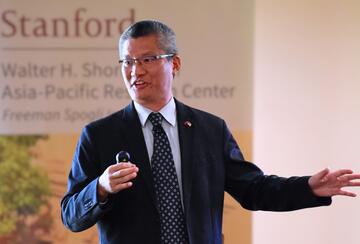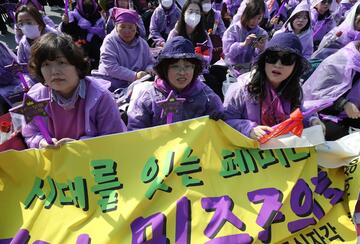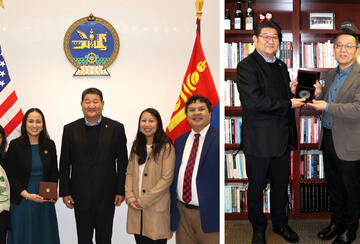Shorenstein Asia-Pacific Research Center News

Isabel Salovaara, APARC predoctoral fellow and a Ph.D. candidate in anthropology, examines how high-stakes examinations and the private tutoring industry in India shape youth aspirations and state relations.

Watch Stanford sociologist Gi-Wook Shin discuss his book, The Four Talent Giants, on the Center for Strategic and International Studies' video podcast, The Impossible State. Shin introduces a framework that explains how Japan, Australia, China, and India became economic powerhouses and what lessons these Asia-Pacific "talent giants" offer to other nations as they face increasingly fierce global competition for talent in the AI era.
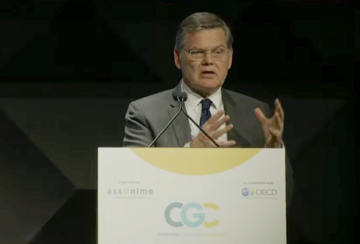
No longer insulated from statecraft, corporations have been thrust onto the front lines of geopolitical rivalry, while governance structures have not caught up, cautions Stanford Law Professor Curtis Milhaupt in a keynote speech delivered at the 2026 Corporate Governance Conference.
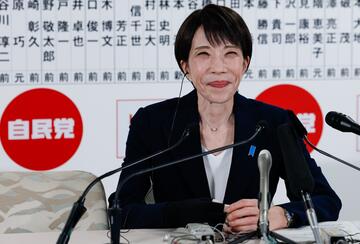
In a new APARC Briefing explainer, APARC and Japan Program Director Kiyoteru Tsutsui analyzes how Takaichi secured a landmark supermajority in a landslide election win for her party and what this outcome means for Japan's fiscal policy, constitutional change, its relationship with China, and its alliance with the United States.
Using data from "American Portrait," a Taiwan-based survey that investigates the public's perception of the United States and China, political economist Wen Chin Wu of Academia Sinica unpacks how the Taiwanese public feels about security, self-defense, and reliance on external partners.
Minyoung An, a postdoctoral fellow with the Korea Program and the Stanford Next Asia Policy Lab at APARC, studies how gender inequality shapes migration pathways and return decisions among South Korean highly skilled women, highlighting risks to Korea's long-term future and revealing that gender is a powerful yet often overlooked driver of global talent flows.

From the practices of higher education institutions to diaspora networks, talent return programs, and immigration policies of central governments, a comparative analysis by Stanford sociologist Gi-Wook Shin shows how different national human resource strategies shape economic success.

China studies expert Jessica Chen Weiss of the Johns Hopkins School of Advanced International Studies reveals how the Chinese Communist Partyʼs pursuit of domestic survival, which balances three core pillars, drives Beijingʼs assertive yet pragmatic foreign policy in an evolving international order.
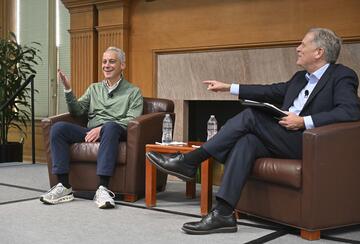
"Trump Tries to Rule, Not Govern": Rahm Emanuel on America's Political Crisis and Fading Alliances
In a Stanford fireside chat and on the APARC Briefing podcast, Ambassador Rahm Emanuel warns of squandered strategic gains in the Indo-Pacific while reflecting on political rupture in America, lessons from Japan, and the path ahead.

Gavin Shatkin, a Lee Kong Chian NUS-Stanford fellow on Southeast Asia at APARC, argues that prevailing urban development challenges in Jakarta, Metro Manila, and Bangkok stem from Cold War-era political and institutional structures imposed by U.S.-backed authoritarian, anti-communist regimes.
Issued by the President of Mongolia, the Mongolian Commemorative Coin of Honor is a symbolic distinction awarded to individuals who have made notable contributions to Mongolia.
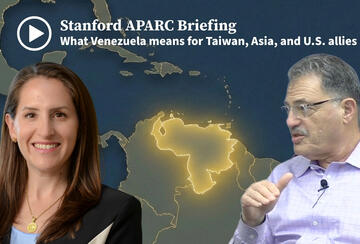
Speaking on the APARC Briefing video series, Larry Diamond and Oriana Skylar Mastro analyze the strategic implications of the U.S. operation in Venezuela for the balance of power in the Taiwan Strait, Indo-Pacific security, America’s alliances, and the liberal international order.
In a special feature story, Japanese news publisher Nikkei spotlights the life and career of Stanford sociologist Kiyoteru Tsutsui.
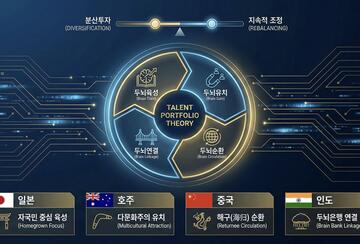
Without Securing Talent, Korea Has No Future
Without Securing Talent, Korea Has No Future
To survive in the global competition for talent while facing the AI era, low fertility, and the crisis of a new brain drain, South Korea must comprehensively review and continuously adjust its talent strategy through a portfolio approach.
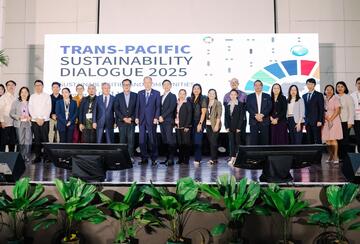
Held in Manila, Philippines, the fourth annual Trans-Pacific Sustainability Dialogue generated cross-sectoral insights on complex issues faced by cities and human settlements across the region, from housing and mobility to disaster resilience.
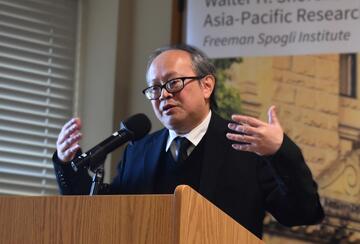
Speaking just one day after deadly clashes between Thailand and Cambodia reignited along their shared border, Thai Ambassador Dr. Suriya Chindawongse joined APARC’s Southeast Asia Program to explain how a fragile truce, shifting U.S. tariffs, emerging semiconductor opportunities, and a surge in online scam syndicates are shaping ASEAN’s future.
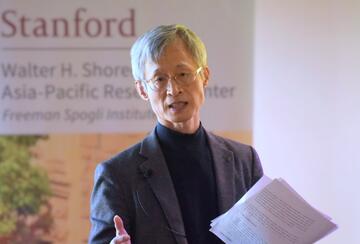
Byongjin Ahn offers an insider’s look at how President Lee Jae-myung’s early leadership is reshaping South Korea’s political order, revealing the tensions between pragmatic governance, fragile liberal norms, and the country’s emerging AI-driven strategic ambitions.
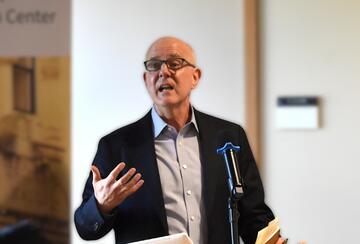
Eurasia Group’s David Meale, a former Deputy Chief of Mission at the U.S. Embassy in Beijing, reflects on the last 30 years and describes how the two economic superpowers can maintain an uneasy coexistence.
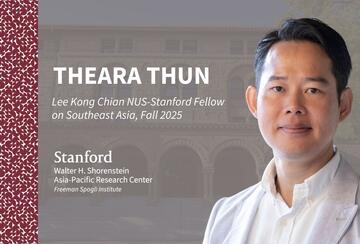
Theara Thun, APARC’s Lee Kong Chian NUS-Stanford Fellow on Southeast Asia, investigates how educational systems emerged in post-Khmer Rouge Cambodia within the broader context of national recovery and development.
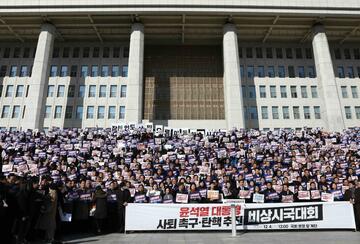
The country’s political polarization has metastasized. What can be done?
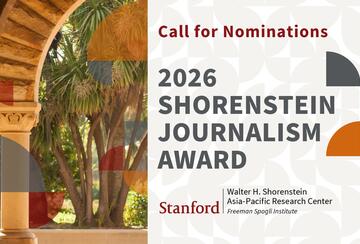
Sponsored by Stanford University’s Shorenstein Asia-Pacific Research Center, the annual award recognizes outstanding journalists and news media outlets for excellence in covering the Asia-Pacific region. News editors, publishers, scholars, and organizations focused on Asia research and analysis are invited to submit nominations for the 2026 award through February 15, 2026.
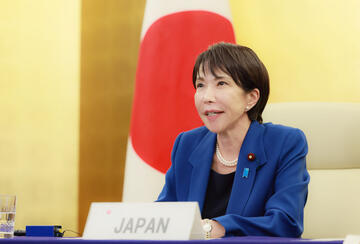
Stanford sociologist Kiyoteru Tsutsui, director of the Shorenstein Asia-Pacific Research Center and the Japan Program, evaluates Japanese Prime Minister Sanae Takaichi's first month in office.


